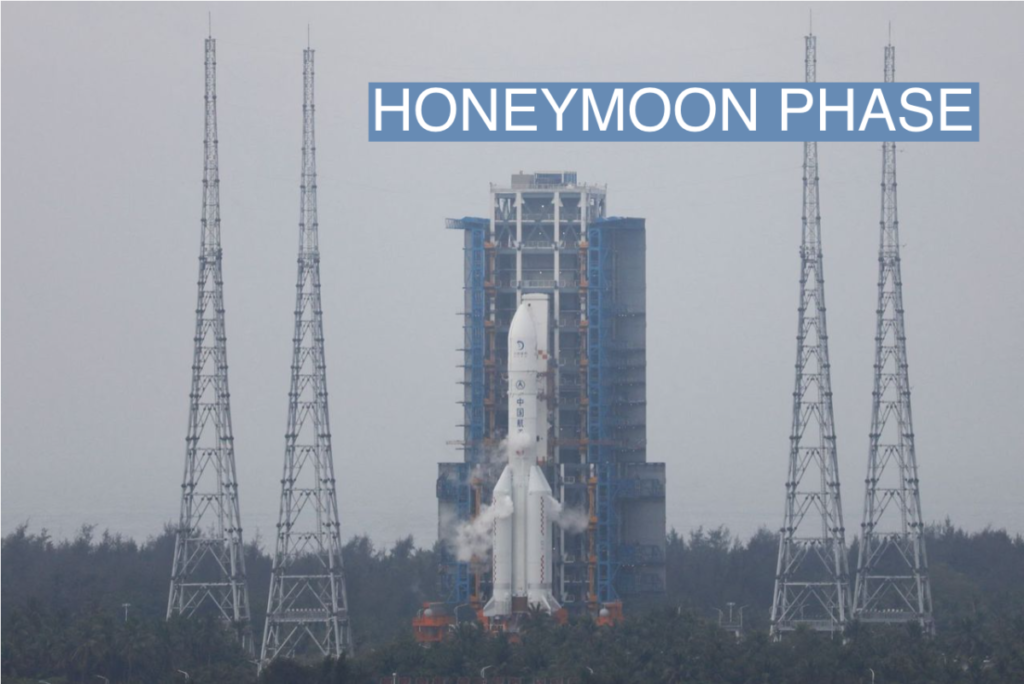Insights from The Guardian, BBC Global News podcast and The Conversation
The news
China landed an unmanned spacecraft on the far side of the moon on Sunday in a historic mission collect moon rock and soil samples and return them to Earth.
It is the first time a space agency has attempted to return samples using remotely piloted spacecraft, as the only other moon rocks that scientists have had to study on Earth were collected during the Apollo era, about fifty years ago, by American scientists. astronauts.
The historic Chang’e 6 mission — no other country has landed spacecraft on the far side of the moonand now China has done it twice – underscoring China’s power amid the new space race to establish permanent, manned moon bases.
SIGNALS
The US is concerned about the Chinese space program
China’s successes in space exploration have raised concerns in the US about its broader geopolitical goals: NASA Administrator Bill Nelson has previously warned that Chinese advances in civil spaceflight conceal a military program and that the US is in a “space race,” echoing the language used in the Cold War with Russia. Of particular concern is the moon: Nelson has said that if China gets there first, they could lock out the US. The USA and China are planning to set up moon bases and that means they need access to resources like water. While the international consensus is that no one can claim territory or resources on the moon, that has never been tested, a reality that one public policy professor described to The Guardian as a “wild, wild West.”
There is more unity than the story of the ‘space race’ suggests
While the “space raceAlthough the story has gained momentum in the US, there is still a basis for international cooperation in space exploration. The European Space Agency, for example participated in the Chang’e 6 moon mission. An ESA technical official told the BBC Global News podcast was a “peaceful” mission with a “purely scientific” purpose: it is “a journey that we try to make together” rather than a race, he said, and it is positive that “the achievements of one organization or one country are the greater efforts of a inspire others. ”
Human lunar bases could have unintended consequences
Chang’e 6 brings China closer to establishing a human base on the moon, something the US is also pursuing. While lunar bases provide new opportunities for science, the presence of a human moon could have unintended consequences, especially on the far side, where near-perfect conditions for radio astronomy exist. Radio astronomy could allow researchers to collect data from black holes and the “cosmic dark ages”, the time before stars and galaxies existed. “The rush to build bases on the moon could disrupt the very conditions that make the moon so attractive for research in the first place,” one astrophysicist warned.

